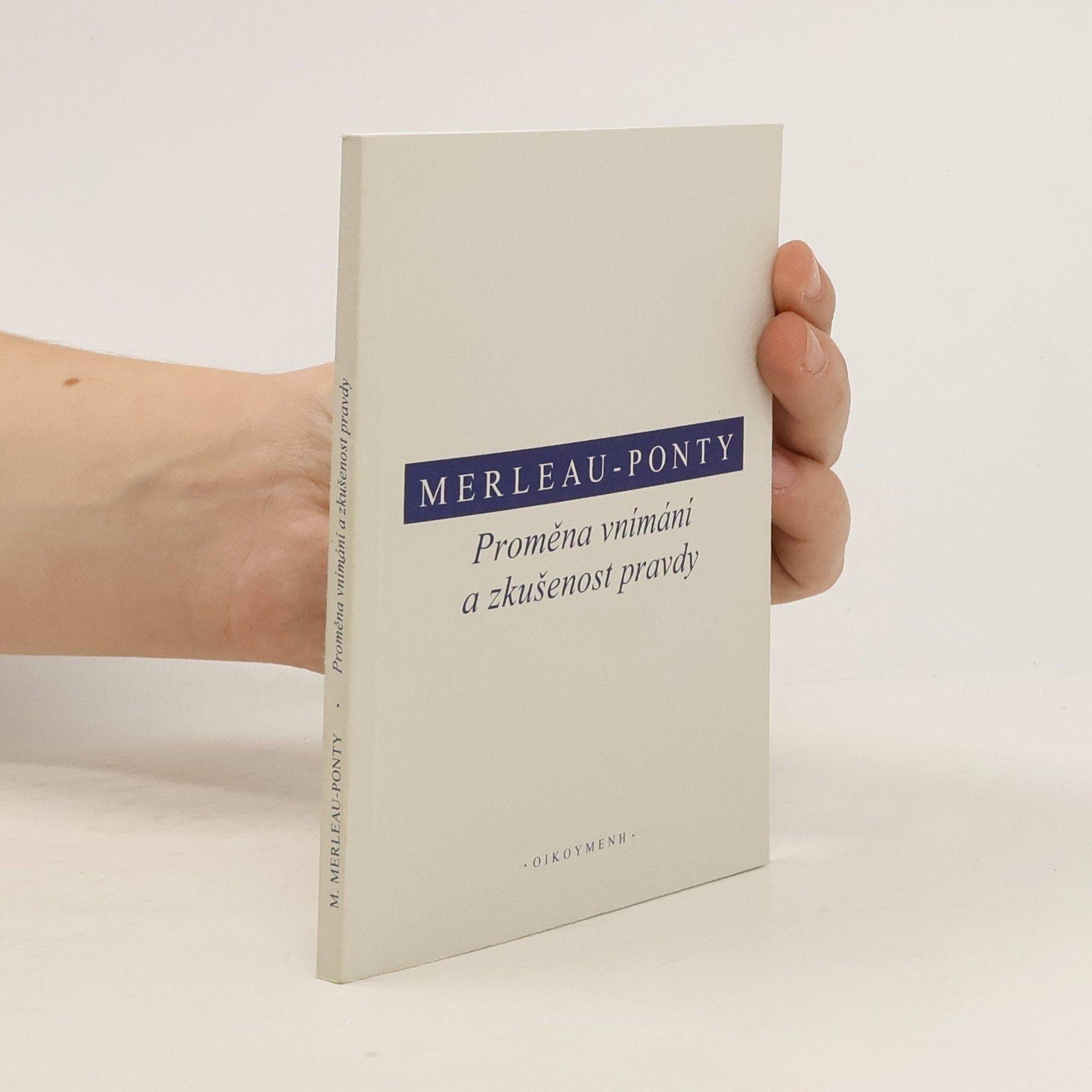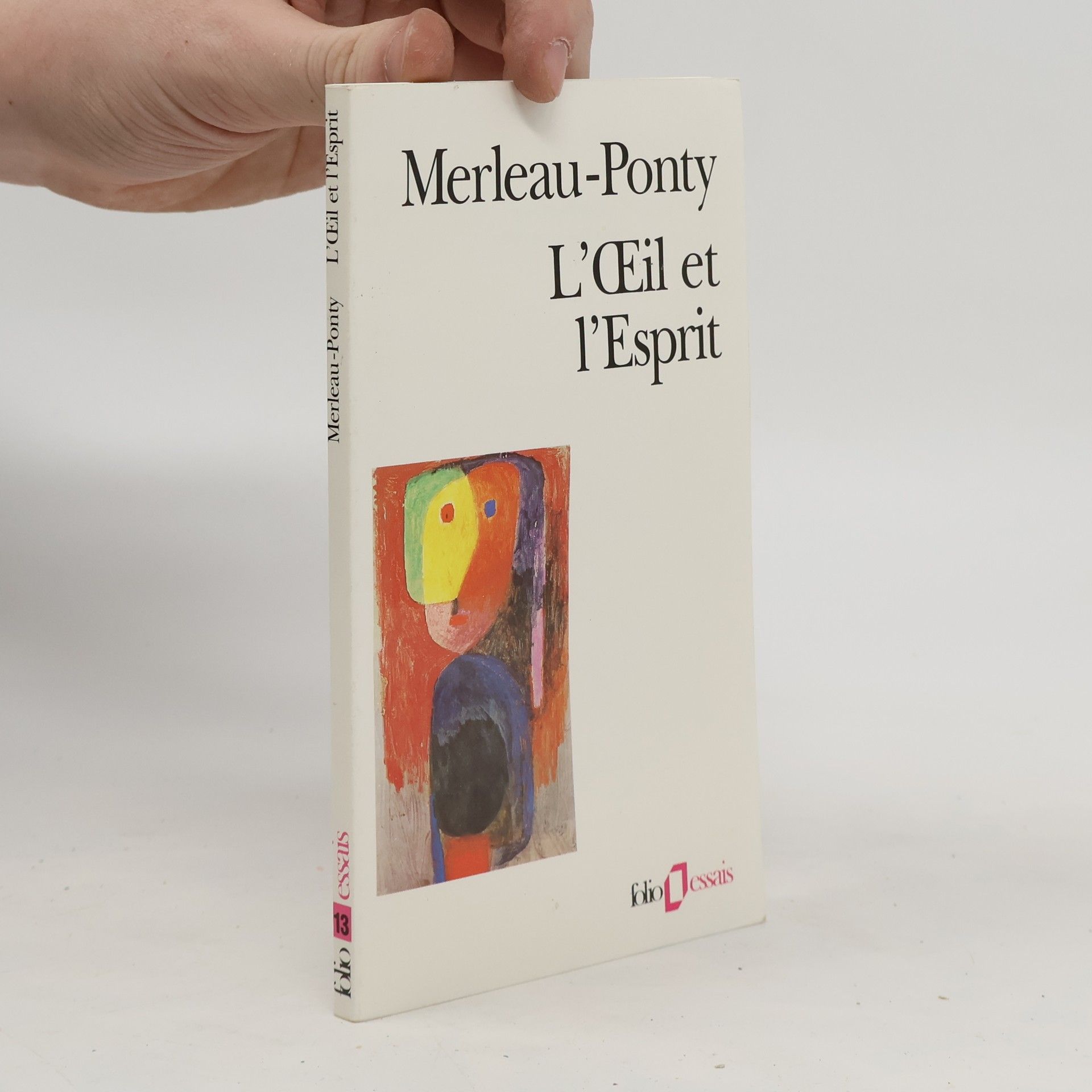Bergson is rightly considered the philosopher of duration. Has this theory, however, been sufficiently elucidated? Is there a domain, aside from life itself, to which the characteristics of duration can be meaningfully ascribed? Why, in his thesis from 1907, does Bergson write of a "real" duration? His subsequent work Duration and Simultaneity: With Reference to Einstein's Theory (1922) is the only volume written by Bergson in the period separating Creative Evolution (1907) and The Two Sources of Morality and Religion (1932). Duration and Simultaneity represents a polemical, unique, mature and relatively neglected work, one that allows us however to respond to these questions - provided that we read it as a work of philosophy and metaphysics. This book was awarded the 2020 Polydore de Paepe Prize of the Royal Academy of Science, Letters and Fine Arts of Belgium.
Maurice Merleau-Ponty Book order (chronological)
Maurice Merleau-Ponty was a French phenomenological philosopher whose core argument champions the foundational role of perception in understanding and engaging with the world. Uniquely among major phenomenologists of his era, Merleau-Ponty engaged extensively with the sciences, particularly descriptive psychology. This integration has made his writings influential in the recent project of naturalizing phenomenology, incorporating insights from psychology and cognitive science. His work offers a distinctive perspective on the embodied nature of experience, prompting readers to reconsider the relationship between mind, body, and the world.

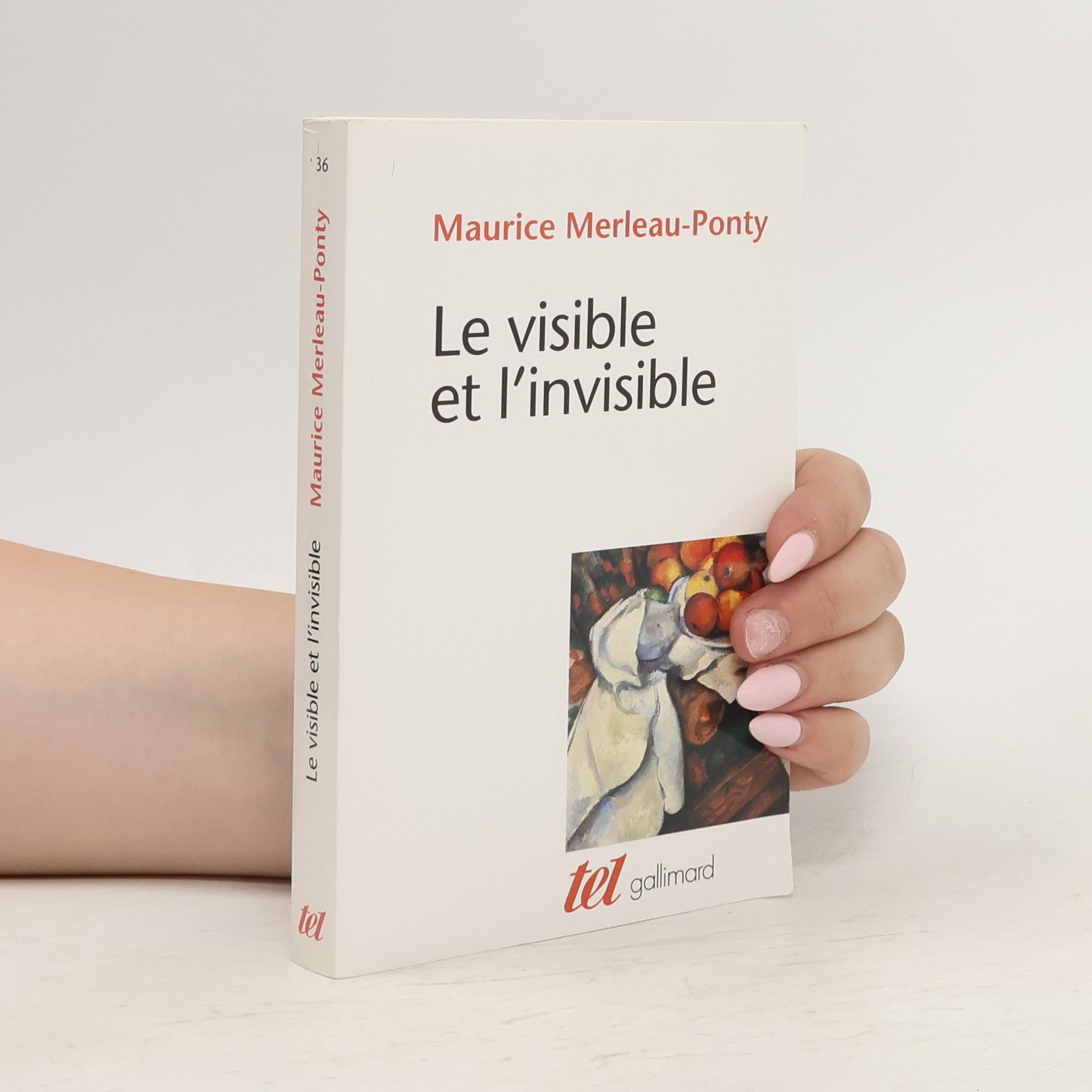


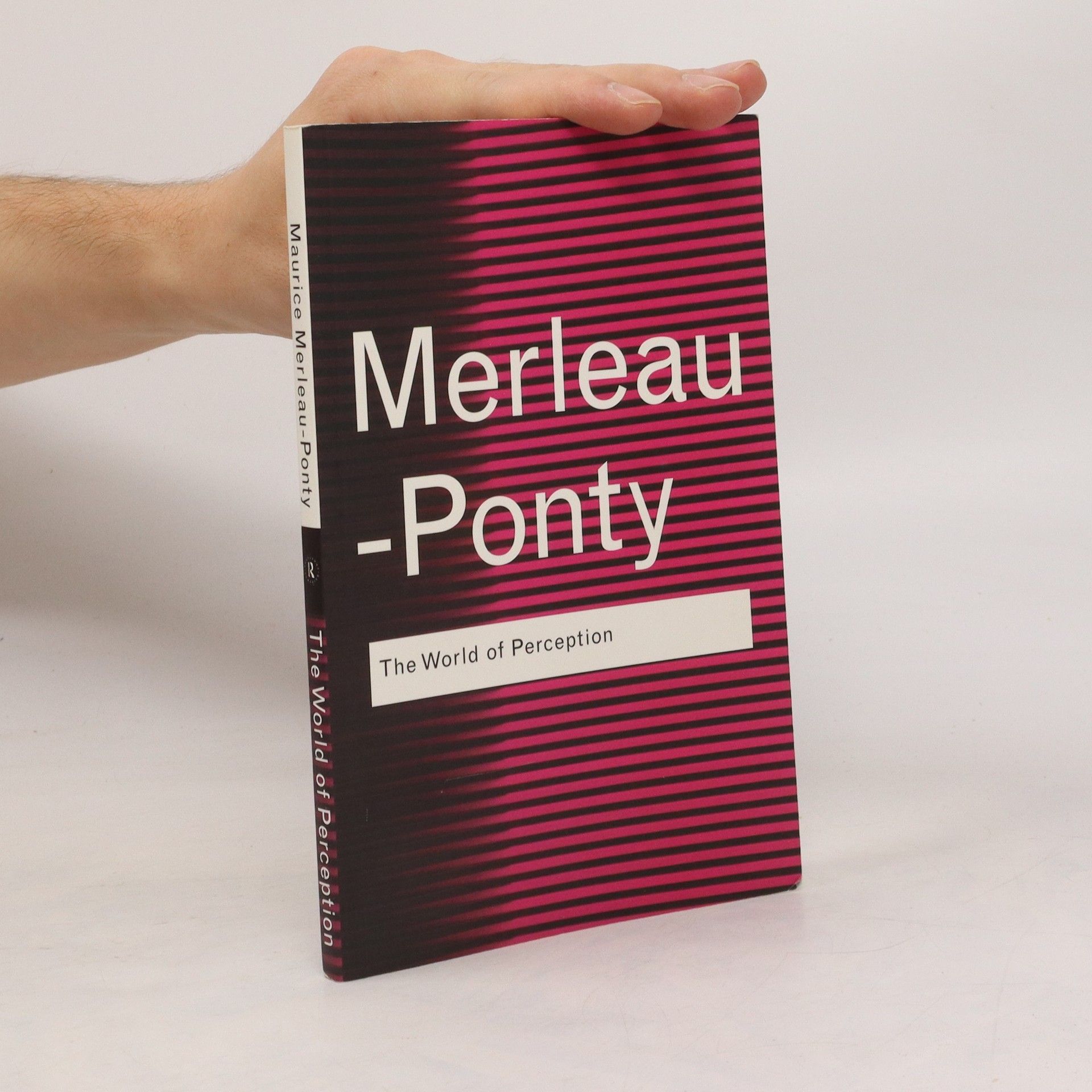

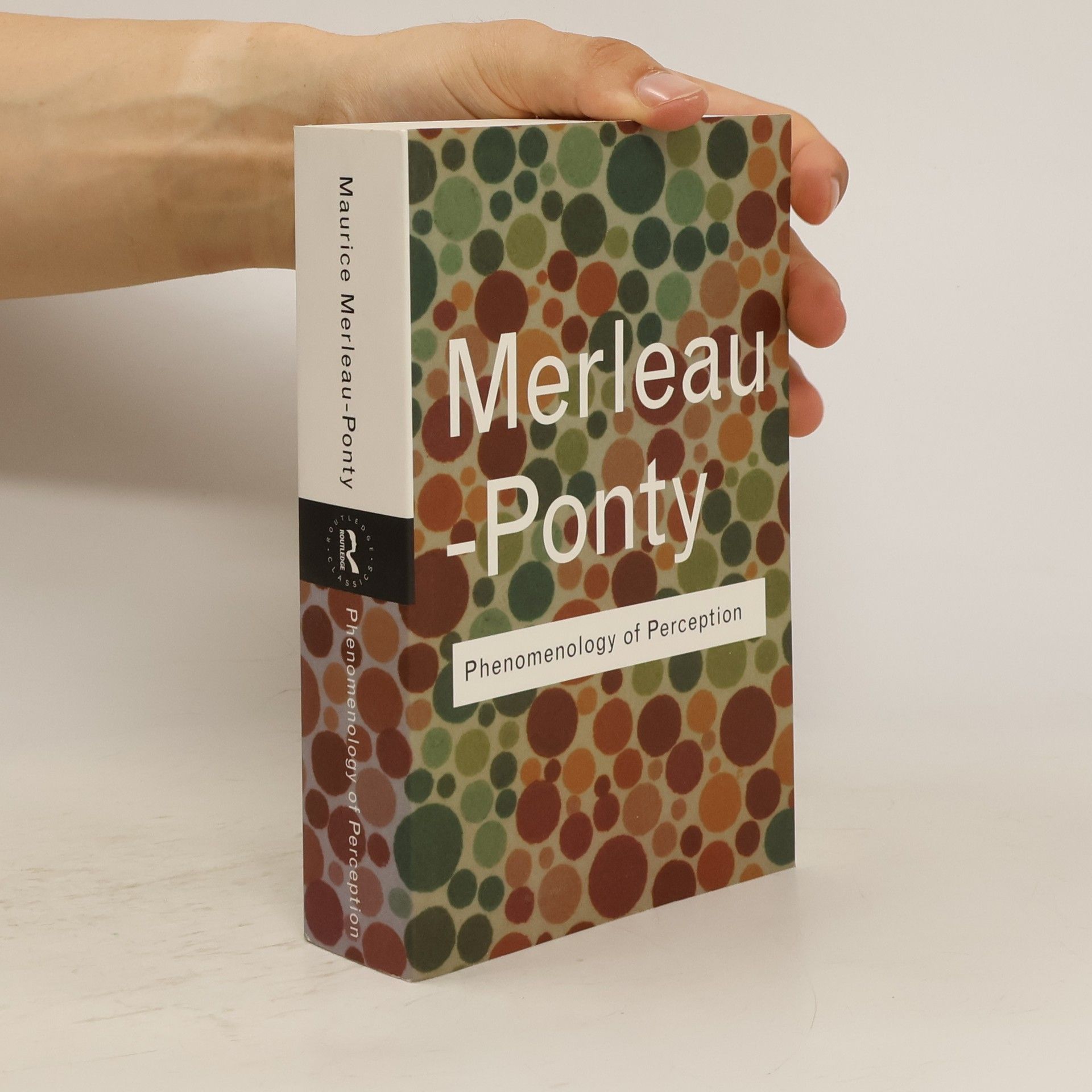
Jean-Paul Sartre i Maurice Merleau-Ponty to najważniejsi francuscy przedstawiciele filozofii egzystencjalizmu. W 1945 r. obaj zakładają „Les Temps Modernes” – czasopismo mające być platformą dyskusji różnych nurtów radykalnej lewicy. W 1950 r. Merleau-Ponty wywołuje skandal, publikując esej „Humanizm i terror” komuniści oskarżają go o ogłoszenie paszkwilu na ZSRR, liberałowie o próbę usprawiedliwienia czystki Stalina z końca lat 30., w trakcie której wymordowano tysiące działaczy radzieckiej partii bolszewickiej. Wkrótce drogi obu filozofów ostatecznie się rozejdą. W 1953 r., w atmosferze powszechnej psychozy, że zimna wojna przekształci się w trzecią wojnę światową, Sartre udzieli bezwarunkowego poparcia komunistom, Merleau-Ponty zaś odejdzie z redakcji „Les Temps Modernes”, potępi sowieckie imperium łagrów, a chwilę później otwarcie zaatakuje swojego przyjaciela w eseju „Sartre i ultrabolszewizm”. Dzieje owego sporu szczegółowo omawia prof. Jacek Migasiński, prezentując też najważniejsze teksty w debacie toczonej na łamach „Les Temps Modernes”. Czytelnik otrzymuje książkę o jednej z najważniejszych polemik politycznych pierwszej połowy lat 50., która w zasadniczym stopniu zaważyła na ewolucji ideowej lewicy w Europie Zachodniej.
Řeč, dějinnost, příroda. Shrnutí přednášek z Collège de France (1952–1960)
- 107 pages
- 4 hours of reading
Maurice Merleau-Ponty pronesl na Collège de France patnáct přednáškových cyklů (1952–1961). Po každém roce sepsal k příslušnému cyklu shrnutí a ta průběžně publikoval v ročence Collège. Souborné vydání shrnutí, které v roce 1968 uspořádal Merleau-Pontyho žák a přítel Claude Lefort, tak přináší ucelený přehled o tom, jak Merleau-Ponty interpretoval řadu důležitých filosofických témat ve středním a pozdním období své filosofické kariéry. Mezi tato témata patřilo zejména vyjadřování, mluva a řeč, dějinné utváření smyslu, příroda, život a lidské tělo ve vztahu k nim či výtvarné umění a literatura. Kromě toho Merleau-Ponty v přednáškách představil i své pojetí filosofie jako radikálního tázání či dialektiky bez syntézy.
Proměna vnímání a zkušenost pravdy
- 71 pages
- 3 hours of reading
Svazek obsahuje dva texty Merleau-Pontyho z konce roku 1951, které měly představit jeho kandidaturu na prestižní Collège de France. Obsahují shrnutí jeho prvních publikací (Struktura chování, Fenomenologie vnímání) a popis projektů, na nichž pracoval (Próza světa) a které plánoval (Viditelné a neviditelné). Hlavním cílem textů je přehled problémů a témat, kterým se chtěl věnovat ve své výuce. Na rozdíl od většiny materiálů po jeho smrti, tyto texty prezentují jeho myšlenkový projekt jako jednotnou strukturu, kde jsou propojena různá, na první pohled nesouvisející témata. Klíčovou otázkou je, jak se tělesně-perceptivní život, popsaný v jeho prvních knihách, proměňuje s kulturními nástroji a řečí, což vede k „zkušenosti pravdy“ a překročení naší situace v poznání. Fenomenologický rozbor vnímání ukazuje, že vnímání není jen základní formou racionálního poznání, a proto se musí proměnit i naše představa o rozumu. Je třeba analyzovat konkrétní postupy, jimiž racionalita uchopuje skutečnost. Materiály z následujících deseti let Merleau-Pontyho působení na Collège ukazují, že se věnoval naplňování a upřesňování tohoto programu.
Smysl filosofického tázání
- 47 pages
- 2 hours of reading
Dva texty k Viditelnému a neviditelnému. Svazek obsahuje dva texty, které se historicky, obsahově i stylisticky úzce váží k autorově posmrtně vydanému rukopisu Viditelné a neviditelné. Jedná o důležitá a jediná souvislá autorova doplnění tohoto nedopsaného projektu, který je považován za významné a aktuální dílo, ale zároveň je pro svůj myšlenkový obsah i fragmentárnost obtížně interpretovatelný. Oba texty řeší metodologickou otázku celého projektu Viditelného a neviditelného: jak se filosoficky tázat v dnešní době, aniž bychom se spokojili s nezřídka redukcionistickými postoji evropské tradice, jako je reflexe na podstatu a hledání faktů. Recepce Merleau-Pontyho prochází v posledních letech velkou proměnou v souvislosti se změnou vydavatelské i čtenářské perspektivy. Proto je překlad je doplněn předmluvou vydavatele-překladatele Jana Haláka.
Myšlení Maurice Merleau-Pontyho prošlo od jeho raných prací o vnímání složitým vývojem, vedoucím až k nezavršenému pokusu o vybudování ontologie smyslově vnímatelného. Předkládaný sborník, sestavený z větší části ze sekundárních textů předních merleau-pontyovských specialistů a doplněný ukázkami Merleau-Pontyho poznámek k přednáškám věnovaným pojmu založení, nabízí různé pohledy na problematiku vymezenou dvěma pojmy, které jsou pro pozdní Merleau-Pontyho myšlení určující: pojmy ideality a založení. Vzhledem k tomu, že právě uvažování o tematice spojené s těmito dvěma pojmy vedlo některé Merleau-Pontyho následovníky k vypracování vlastních fenomenologických projektů, lze tento svazek považovat nejen za průvodce pozdní Merleau-Pontyho filosofií, ale také za průhled do současné francouzské fenomenologie.
Maurice Merleau-Ponty is one of the few major phenomenologists to engage extensively with empirical research in the sciences, and the only one to examine child psychology with rigor and in such depth. His writings have recently become increasingly influential, as the findings of psychology and cognitive science inform and are informed by phenomenological inquiry. Merleau-Ponty’s Sorbonne lectures of 1949 to 1952 are a broad investigation into child psychology, psychoanalysis, pedagogy, phenomenology, sociology, and anthropology. They argue that the subject of child psychology is critical for any philosophical attempt to understand individual and intersubjective existence. Talia Welsh’s new translation provides Merleau-Ponty’s complete lectures on the seminal engagement of phenomenology and psychology.
The World of Perception
- 160 pages
- 6 hours of reading
'In simple prose Merleau-Ponty touches on his principle themes. He speaks about the body and the world, the coexistence of space and things, the unfortunate optimism of science – and also the insidious stickiness of honey, and the mystery of anger.' - James Elkins Maurice Merleau-Ponty was one of the most important thinkers of the post-war era. Central to his thought was the idea that human understanding comes from our bodily experience of the world that we perceive: a deceptively simple argument, perhaps, but one that he felt had to be made in the wake of attacks from contemporary science and the philosophy of Descartes on the reliability of human perception. From this starting point, Merleau-Ponty presented these seven lectures on The World of Perception to French radio listeners in 1948. Available in a paperback English translation for the first time in the Routledge Classics series to mark the centenary of Merleau-Ponty's birth, this is a dazzling and accessible guide to a whole universe of experience, from the pursuit of scientific knowledge, through the psychic life of animals to the glories of the art of Paul Cézanne.
Východiskem analýz, které Merleau-Ponty podává v této knize, je kritika koncepcí, které chování živých organismů pojímají jako kauzální účinky izolovaných neurofyziologických procesů; najdeme tu tedy např. i kritiku Pavlovovy teorie podmíněných reflexů. Vztah psychického řádu k řádu vitálnímu a vztah duchovna k psychičnu je autorem pojímán jako integrace, díky níž se určitá struktura stává částí struktury jí nadřazené. Vyústěním zkoumání je pak pojetí navazující na základní myšlenky Husserlovy fenomenologie.
L'Œil et l'Esprit
- 93 pages
- 4 hours of reading
L'œil et l'Esprit est le dernier écrit que Merleau-Ponty put achever de son vivant.Installé, pour deux ou trois mois, dans la campagne provençale, non loin d'Aix, au Tholonet, goûtant le plaisir de ce lieu qu'on sentait fiat pour être habité, mais surtout, jouissant chaque jour du paysage qui porte à jamais l'empreinte de l'œil de Cézanne, Merleau-ponty réinterroge la vision, même temps que la peinture. Il cherche, une fois de plus, les mots du commencement, des mots, par exemple, capables de nommer ce qui fait le miracle du corps humain, son inexplicable animation, sitôt noué son dialogue muet avec les autres, le monde et lui-même - et aussi la fragilité de ce miracle.

